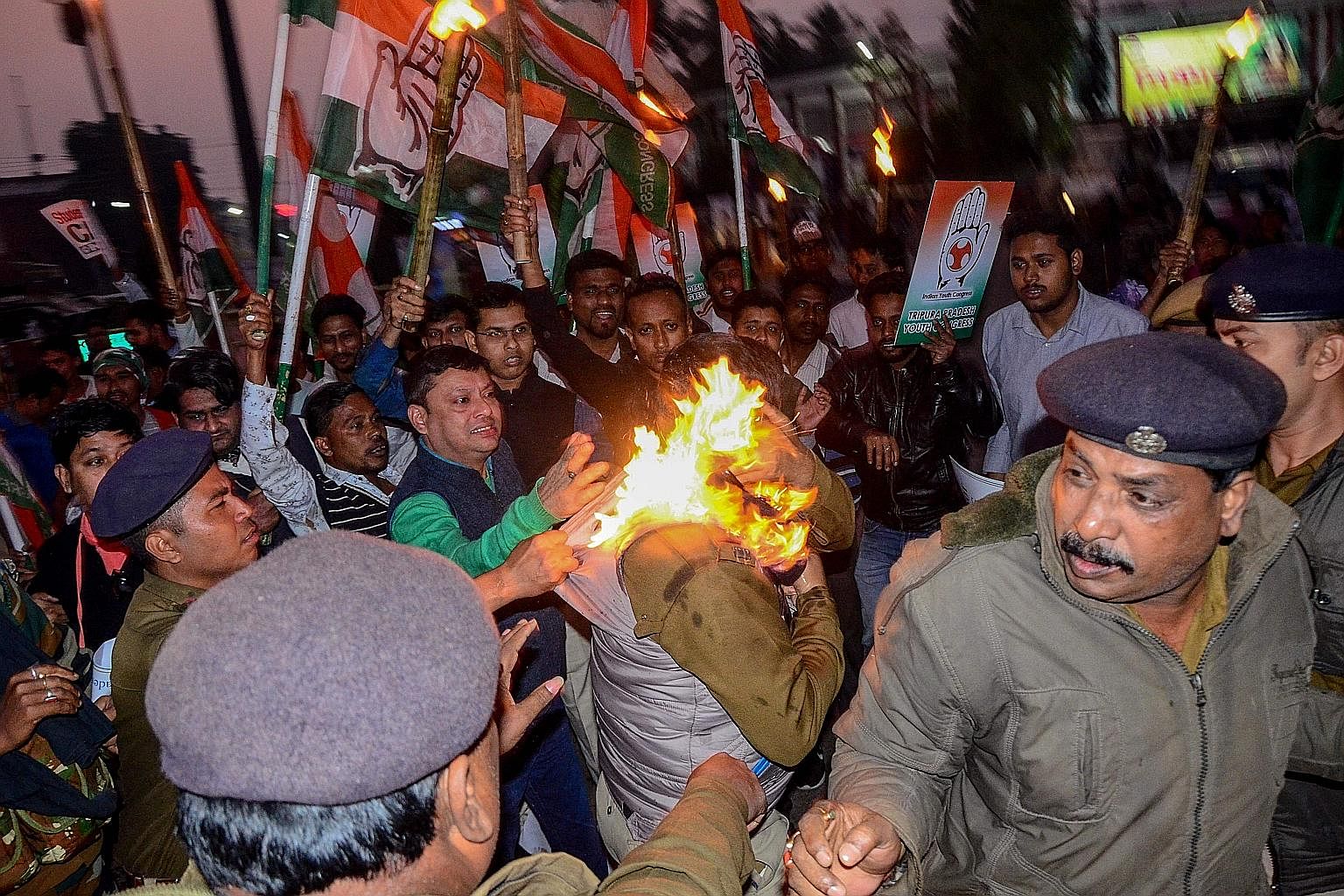The passage of a religion-specific immigration Bill by India's Parliament is seen as a turning point for the country, with many arguing that it runs contrary to the secular Constitution that ensures equality for all religions.
The Citizenship Amendment Bill cleared Parliament on Wednesday, with a majority in the Upper House, and now goes to the President for assent before becoming law.
The Bill provides citizenship to illegal immigrants from Pakistan, Bangladesh and Afghanistan who are of the Hindu, Sikh, Buddhist, Jain, Parsi and Christian faiths - but not Muslims. It reduces the requirement for eligibility for citizenship from a 12-year residency in India to five.
The Indian Union Muslim League has already filed a petition in the Supreme Court, claiming that the Bill is against the basic principles of the Constitution.
Its passage has evoked strong sentiments, and could further polarise Indian society; there are fears of marginalisation among the minority Muslims, who form around 14 per cent of the country's 1.3 billion population.
The government has said such fears are unfounded, and that the Bill is not aimed at Muslims in India, but at helping minorities who face persecution.
Prime Minister Narendra Modi said the passage of the Bill was "a landmark day for India and our nation's ethos of compassion and brotherhood", even as the country's north-east, which does not want immigrants of any religion, erupted in protests.
In Assam state, where locals have long felt that illegal immigration from Bangladesh poses a threat to their culture, buses were burnt, protesters clashed with security forces and the army was deployed. At least one protester reportedly died yesterday.
Fierce debates in Parliament, where Mr Asaduddin Owaisi, president of the All India Majlis-e-Ittehadul Muslimeen, tore up the Bill, reflect the polarisation in society over the measure.
Dr Sandeep Shastri, the pro-vice-chancellor of Jain University, said: "There is this perception... that the measure is aimed at one minority community. I worry about long-term implications for national unity."
Mr Modi was re-elected in a landslide victory in May's general elections. Since his return to power, the Prime Minister has set a blistering pace in fulfilling some longstanding promises of his Bharatiya Janata Party (BJP).
In August, the government revoked the autonomy of Muslim-majority Kashmir, shut down Internet and phone connections, and jailed Kashmir's elected representatives and separatist leaders. That was followed by a landmark Supreme Court ruling in favour of Hindu groups involved in a dispute with Muslim groups over the building of a temple on a disputed site, where a mosque had been demolished by Hindu nationalists in 1992.

The Bill will be followed by a drive, in the form of a National Citizens Register (NRC), to weed out illegal immigrants. The NRC was carried out in Assam, resulting in the exclusion of 1.9 million people, including scores of Hindus who now get protection under the citizenship Bill.
Home Minister Amit Shah has argued in Parliament that the Bill is not anti-Muslim and that the federal government will consider applications for citizenship from Muslims from the same three countries. "We will not discriminate against anyone on the basis of religion. Muslims have nothing to fear. This Bill is not snatching anyone's citizenship."
BJP national secretary Ram Madhav, expounding the party's viewpoint, said the Bill was necessary because all non-Muslim immigrants were victims of the subcontinent's partition in 1947, when Pakistan was carved out of India on the basis of religion.
"Far from being anti-secular, Indian citizenship was a commitment given by our leaders to the minorities. That is precisely what the Narendra Modi government is fulfilling now," he wrote in The Indian Express.
But critics have pointed out that if the aim is to protect victims of religious persecution, then Rohingya Muslims in Myanmar and Ahmadiyyas in Pakistan, both facing religious persecution, should have been included.
There is talk of civil disobedience as a mark of protest against the Bill. Social activist Harsh Mander has announced that he would convert from Hindu to Muslim.
Political commentator and author Nilanjan Mukhopadhyay said: "Indian citizenship will now be linked with religion, like in Pakistan. It is very unfortunate.
"The BJP talks about a Bill to safeguard minorities (from neighbouring countries). The question that should be asked is what about minorities in our country."

